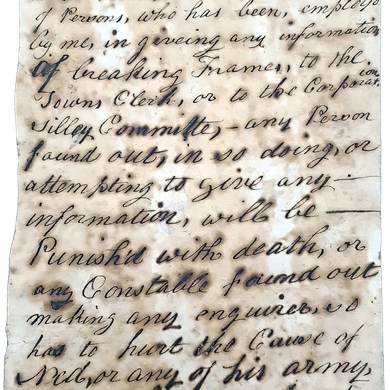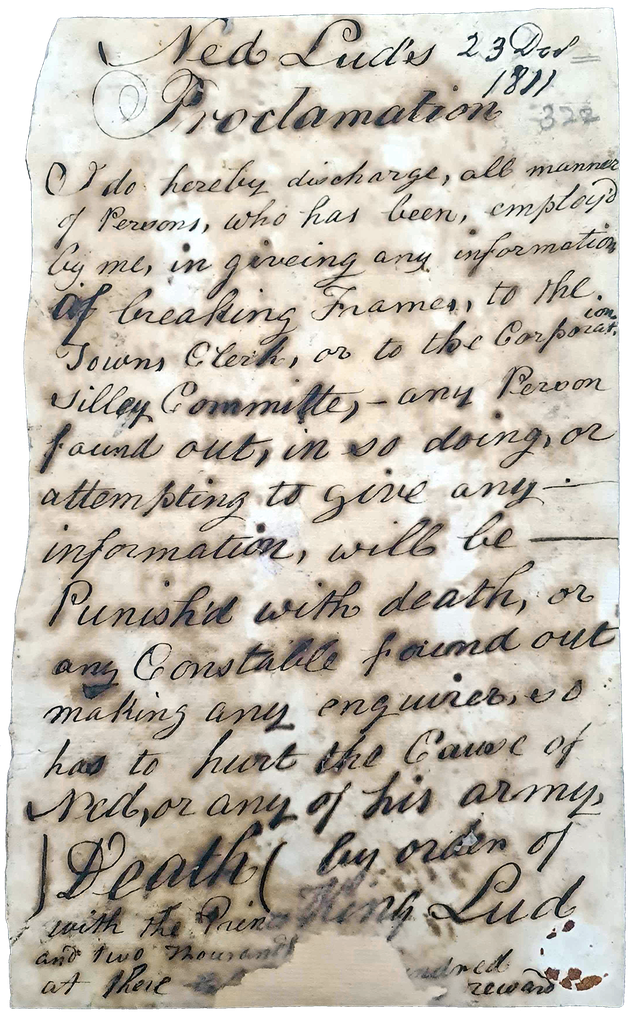Record revealed
The proclamation of Ned Ludd
This note threatens death upon anyone talking to the authorities about ‘frame breaking’ by the Luddites, textile workers protesting against new, labour-saving technology in the early 19th century.

Image 1 of 1

Transcript
Ned Lud’s Proclamation 23 Decr 1811
I do hereby discharge, all manner of Persons, who has been, employ’d by me, in giveing any information, of breaking Frames, to the Town Clerk, or to the Corporation Silley Committee ~ any Person found out, in so doing or attempting to give any information, will be Punish’d with death, or any Constable found out making any enquiries, so has to hurt the Cause of Ned, or any of his army, Death (by order of King Lud)
[illegible].
Why this record matters
Date: 23 December 1811
As Britain industrialised, new inventions and innovations in manufacture – particularly the adoption and improvement of existing technology – sidelined many skilled workers in the textile trades. These workers, many of whom had spent years learning their craft, opposed the increased use of mechanised looms and wide knitting frames.
They protested against those employers who were using new machines to replace skilled workers and drive down wages. A legendary and mythical leader, Ned Ludd, became their imaginary figurehead.
Luddites produced formal petitions, organised public protests, wrote to government officials and industrialists, and undertook direct action to destroy the new and hated machinery. The latter is what they are best remembered for in popular history.
Machine breaking in England was not new in the 1800s, and can in fact be traced back to the second half of the 17th century. The Luddite disturbances were newly intense and regionally specific, however. They started in Nottinghamshire in 1811 and spread primarily to the West Riding of Yorkshire and Lancashire in 1812, then later on to Leicestershire and Derbyshire.
The Luddites’ actions resulted in terrible state retribution. Troops were sent to the areas affected, machine breaking itself was made a capital crime (earning the death penalty in and of itself), and terrible punishments were inflicted on those charged and convicted. At a Special Commission in York in January 1813, 17 men were hanged while others were transported to the British colonies.
With the personal stakes so high – being identified as a Luddite could lead to a criminal indictment, a matter of life and death – it is easy to see why activists insisted upon silence. Machine breakers were sworn to secrecy to protect each other and, as this document clearly shows, they were warned about talking to the authorities.